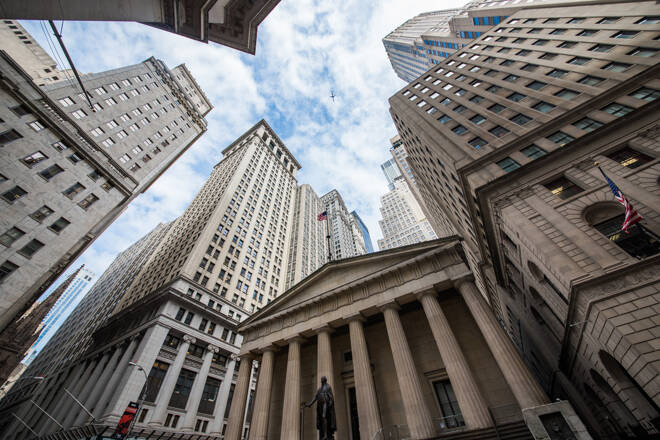Advertisement
Advertisement
KKR to Sell its Epicor Software to Clayton, Dubilier & Rice for $4.7 Billion; Target Price $40
By:
KKR & Co Inc, an American global investment company that manages multiple alternative asset classes, said it will sell its software business Epicor Software Corporation to Clayton, Dubilier & Rice in a $4.7 billion deal announced on Monday.
KKR & Co Inc, an American global investment company that manages multiple alternative asset classes, said it will sell its software business Epicor Software Corporation to Clayton, Dubilier & Rice in a $4.7 billion deal announced on Monday.
CD&R Operating Partner Jeff Hawn will serve as Chairman of the Epicor Board upon close of the transaction, expected later this year, the company said.
UBS Investment Bank is acting as financial advisor and Debevoise & Plimpton LLP as legal advisor to CD&R. Barclays is acting as lead financial advisor, BofA Securities and Jefferies LLC as financial advisors, and Simpson Thacher & Bartlett LLP as legal advisor to KKR and Epicor.
KKR shares closed 0.32% higher at $34.93 on Friday, the stock is up about 20% so far this year.
Executive comments
“Four years ago, we embarked on an ambitious product modernization journey together with Epicor and are incredibly proud of the successes that the company has achieved to date, particularly with its recent cloud releases,” remarked John Park, Chairman of the Epicor Board and Head of Americas Technology Private Equity at KKR.
“We are confident that CD&R will provide valuable support as the company continues these product- and customer- centric investments to accelerate growth in the cloud.”
KKR stock forecast
Twelve analysts forecast the average price in 12 months at $39.96 with a high forecast of $47.50 and a low forecast of $36.00. The average price target represents a 14.40% increase from the last price of $34.93. From those 12 analysts, nine rated “Buy”, three rated “Hold” and none rated “Sell”, according to Tipranks.
Morgan Stanley gave a target price of $37 with a high of $63 under a bull-case scenario and $16 under the worst-case scenario. KKR & Co Inc had its price objective boosted by stock analysts at Credit Suisse Group to $38 from $34. The firm currently has a “neutral” rating on the asset manager’s stock.
Other equity analysts also recently updated their stock outlook. Oppenheimer lowered the price target to $39 from $40, BMO raised their price objective to $46 from $44, Citigroup upped their price forecast to $47.5 from $40, Wells Fargo increased their stock price target to $43 from $40 and KBW raised it to $43 from $41. Bank of America upped their target price to $40 from $36 and gave the stock a “buy” rating. At last, Keefe, Bruyette & Woods upped their target price to $41 from $34.
We think it is good to buy at the current level and target $40 as 50-day Moving Average and 100-200-day MACD Oscillator signals a strong buying opportunity.
Analyst view
“While we see an attractive organic asset growth trajectory, we also see a recessionary backdrop that raises the risk to KKR’s fee-related earnings growth story if fundraising slows, transaction fees stall, and costs don’t flex as performance fees and investment income decline,” said Michael Cyprys, equity analyst at Morgan Stanley.
“Recessionary backdrop raises the risk of balance sheet marks and limited book value growth that could dampen prior ROE generation of mid-teens to 20%+. C-corp structure (as of July 1, 2018 ) with no K-1s should help expand the investor base over time,” he added.
Upside and Downside risks
Upside: 1) Faster deployment with greater opportunity set. 2) Accelerated portfolio exit activity. 3) Stronger fundraising boosted by seeding of new strategies. 4) Better balance sheet marks than feared – highlighted Morgan Stanley.
Downside: 1) Deeper recession that leads to weaker investment returns, balance sheet markdowns and delays harvesting of investments pressuring earnings. 2) Increased political and regulatory scrutiny of PE business model.
About the Author
Vivek Kumarauthor
Vivek completed his education from the University of Mumbai in Economics and possesses stronghold in writing on stocks, commodities, foreign exchange, and bonds.
Advertisement
